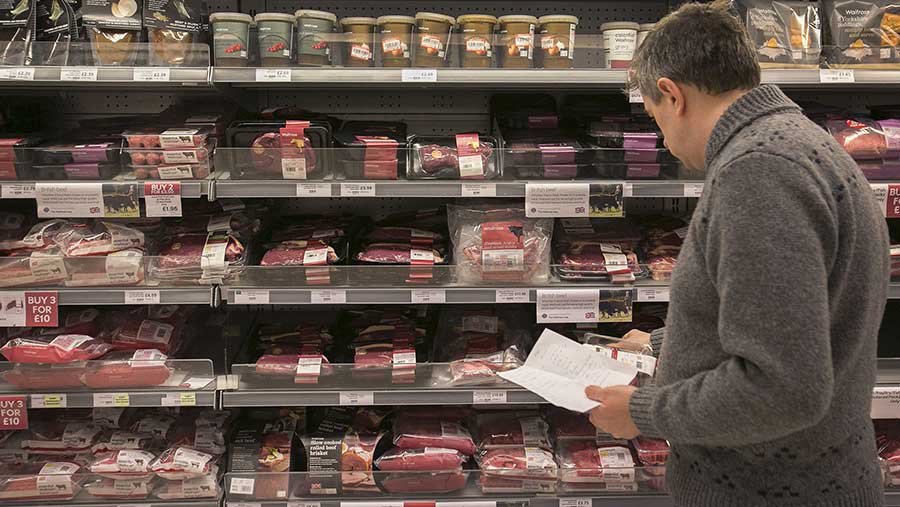Could a meat tax be imposed in the UK?
 © London News Pictures/REX/Shutterstock
© London News Pictures/REX/Shutterstock A tax on meat could be one of the ways that future governments help pay for environmental goods and services, financial experts have said.
Mimicking the levy on sugar and alcohol would help to limit the impact of soaring global consumption, which has been linked to damage to the environment and human health.
That’s according to the Farm Animal Investment Risk and Return (Fairr) initiative, which aims to allow socially conscious investors to evaluate the impact of investing in agricultural companies.
See also: Fixed-time AI improves calf weights for Welsh beef producer
Global meat consumption increased 500% between 1992 and 2016, a rise which has frequently been credited as a benchmark for rising affluence in emerging economies such as India and China.
However, more meat consumption frequently gets the blame for increases in greenhouse gas emissions, rising obesity levels, increasing antibiotic resistance and soil degradation and deforestation.
On the cards in the UK?
Fairr’s recent report to investors says that the tax is already being discussed by opinion makers in Denmark, Sweden and Germany, but there are no current plans in the UK.
But the authors say British investors should anticipate it being on the agenda over here in the long term as legislators look to implement the Paris Agreement on climate change.
Over in Germany there were calls this year from the country’s federal environment agency to raise the tax on animal products from 7% to 19%.
This would hit everyday products such as sausages, eggs and cheese, significantly raising costs for the consumer.
Tax not a silver bullet
Dan Crossley, chief executive at the Food Ethics Council, a think tank that delves into issues throughout the food supply chain, said “slapping a tax on something on its own is not the answer”.
He said that government is likely to want to cut the cost to society of excessive meat consumption but that should take place alongside awareness campaigns and better labelling standards.
Could the sugar tax be the start of targeted food taxation?
The most recent example of the UK government imposing a tax on food is the sugar tax, which is due to come into force next year.
The rationale is that the cost of a sugary drink is too low to take into account the cost of over-consumption to health services.
Public Health England, the government agency tasked with helping people make healthier life choices, puts the cost to the NHS of treating obesity at £5bn per year and the cost of diabetes at £10bn per year.
This has already been hailed a success as drinks companies have moved to reduce the amount of the sweet treat in their drinks to below the 5g/100ml tax threshold.
If the scheme is judged in the longer term to have been effective in reducing excessive sugar consumption it is likely to not be the last time it is deployed as a tactic to trim the nation’s unhealthy habits.
